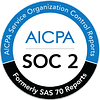Hiring independent contractors in the Philippines is relatively easy to do, cost effective and has potential to help your business. The one area where most businesses run into issues is not making sure their independent contractors are staying compliant with local labor laws and tax burdens. This may be a risk you are willing to take for a few people, but has your team grows it can pose a massive risk.
Here are the steps your Philippines Independent contractors need to take in order to be compliant with local laws.
The registration process of an independent contractor to the Bureau of International Revenue
You have to register to the Bureau of International Revenue, an agency of the Department of Finance.
Secure an Occupational Tax Receipt (OTR) or a Professional Tax Receipt (PTR)
•Some cities, like Makati, don’t issue an OTR. If you are based in one of these cities, you can go straight to the next paragraph (getting TIN).
•If you have a professional license, you must secure a Professional Tax Receipt (PTR); if not, you must secure an Occupational Tax Receipt (OTR).
•To get a PTR / an OTR, go to your local Treasurer’s Office with a contract copy from any of your existing clients.
•Some cities, like Muntinlya, will also require you to secure a health permit before giving you your PTR / OTR.
Get your TIN (Tax Identification Number)
•If you are transitioning from being employed to self-employed professional, your TIN is probably registered in the Revenue District Offices of your previous employer. In this case, you will have to go there to fill in Form 1905 and request a transfer of your TIN to the RDO of your current location.
•If you’ve never been an employee in the Philippines, you don’t have a TIN yet. In this case, go to your designated BIR Revenue District Offices (RDO) and apply for a Tax Identification Number.
•This process should take 3-10 business days.
Apply for Book of Accounts
To get your Book of Accounts, you are required to bring the following documents to your designated BIR Revenue District Office:
•3 filled-out copies of BIR Form Application 1901 (Registration for Self-Employed and Mixed Income Individuals)
•A Philippine Statistics Authority (PSA) birth certificate
•A labor contract or company certification
•Books for stamping
•Your cash receipt journal
•Your cash disbursement journal
•Your general journal
•Your general ledger
•Your marriage contract, if applicable
When changing to a new Revenue District Office, you need to go back to your old Revenue District Office to ask them to transfer your records to the new one.
Payment of your registration fee
To get your Certificate of Registration in your designated BIR Revenue District Office, you have to follow these steps:
•Fill out Form 1901 (Application for Registration)
•Pay PHP 500 for the Certification fee and Documentary Stamp Tax at any authorized bank
Apply for a Certificate of Registration (COR)
•Secure your Book of Journals: 4 books for non-VAT (but some cities will require only 2 books). It will cost you around PHP 50 per book.
•Attend the required taxpayer’s briefing of Form 2303 (the BIR Certificate of Registration) and the “Ask for a Receipt” Notice
•Use Bureau of International Revenue’s Form 1906 to apply for Authority to Print Receipts and print 3 copies of the Form 1906.
•Depending on the Revenue District Office, you will have to wait between 2 and 4 weeks to get your Certificate of Registration.
Taxes in the Philippines
Here is an overview of the taxes you will have to pay every year:
•Annual Registration Fee (BIR Form 0605): billed every January
•Monthly Percentage Tax (BIR Form 2551M): on or before the 20th of the month
•Quarterly Income Tax Return (BIR Form 1701Q):
Q1: On or before May 15 of the current taxable year
Q2: On or before August 15 of the current taxable year
Q3: On or before November 15 of the current taxable year
The importance of working in compliance with Filipino laws and regulations
Filipino laws apply even if your clients are based abroad. If you are caught not issuing an Official Receipt, the Bureau of International Revenue may:
•penalize and charge you anywhere from PHP 30,000 to PHP 100,000
•apply sanctions under the Oplan Kandado program
•charge you with tax evasion, which is punishable by imprisonment
The registration process of an independent contractor to the Bureau of International Revenue
You have to register to the Bureau of International Revenue, an agency of the Department of Finance.
Secure an Occupational Tax Receipt (OTR) or a Professional Tax Receipt (PTR)
•Some cities, like Makati, don’t issue an OTR. If you are based in one of these cities, you can go straight to the next paragraph (getting TIN).
•If you have a professional license, you must secure a Professional Tax Receipt (PTR); if not, you must secure an Occupational Tax Receipt (OTR).
•To get a PTR / an OTR, go to your local Treasurer’s Office with a contract copy from any of your existing clients.
•Some cities, like Muntinlya, will also require you to secure a health permit before giving you your PTR / OTR.
Get your TIN (Tax Identification Number)
•If you are transitioning from being employed to self-employed professional, your TIN is probably registered in the Revenue District Offices of your previous employer. In this case, you will have to go there to fill in Form 1905 and request a transfer of your TIN to the RDO of your current location.
•If you’ve never been an employee in the Philippines, you don’t have a TIN yet. In this case, go to your designated BIR Revenue District Offices (RDO) and apply for a Tax Identification Number.
•This process should take 3-10 business days.
Apply for Book of Accounts
To get your Book of Accounts, you are required to bring the following documents to your designated BIR Revenue District Office:
•3 filled-out copies of BIR Form Application 1901 (Registration for Self-Employed and Mixed Income Individuals)
•A Philippine Statistics Authority (PSA) birth certificate
•A labor contract or company certification
•Books for stamping
•Your cash receipt journal
•Your cash disbursement journal
•Your general journal
•Your general ledger
•Your marriage contract, if applicable
When changing to a new Revenue District Office, you need to go back to your old Revenue District Office to ask them to transfer your records to the new one.
Payment of your registration fee
To get your Certificate of Registration in your designated BIR Revenue District Office, you have to follow these steps:
•Fill out Form 1901 (Application for Registration)
•Pay PHP 500 for the Certification fee and Documentary Stamp Tax at any authorized bank
Apply for a Certificate of Registration (COR)
•Secure your Book of Journals: 4 books for non-VAT (but some cities will require only 2 books). It will cost you around PHP 50 per book.
•Attend the required taxpayer’s briefing of Form 2303 (the BIR Certificate of Registration) and the “Ask for a Receipt” Notice
•Use Bureau of International Revenue’s Form 1906 to apply for Authority to Print Receipts and print 3 copies of the Form 1906.
•Depending on the Revenue District Office, you will have to wait between 2 and 4 weeks to get your Certificate of Registration.
Taxes in the Philippines
Here is an overview of the taxes you will have to pay every year:
•Annual Registration Fee (BIR Form 0605): billed every January
•Monthly Percentage Tax (BIR Form 2551M): on or before the 20th of the month
•Quarterly Income Tax Return (BIR Form 1701Q):
Q1: On or before May 15 of the current taxable year
Q2: On or before August 15 of the current taxable year
Q3: On or before November 15 of the current taxable year
The importance of working in compliance with Filipino laws and regulations
Filipino laws apply even if your clients are based abroad. If you are caught not issuing an Official Receipt, the Bureau of International Revenue may:
•penalize and charge you anywhere from PHP 30,000 to PHP 100,000
•apply sanctions under the Oplan Kandado program
•charge you with tax evasion, which is punishable by imprisonment
Conculsion
Hiring independent contractors in the Philippines is appealing because of it’s cost effectiveness. The main issue here is compliance and most IC’s don’t want to do the work required to gain or maintain compliance thus putting the burden on you. Companies like Connext work to help you build a team of dedicated employees in the Philippines. We work to ensure that employees are 100% compliant with local laws and taxes and give you the opportunity to enjoy the benefit of their work with little headache.







